Navigating ABDM Integration: A Smarter Engagement Model for Healthtech
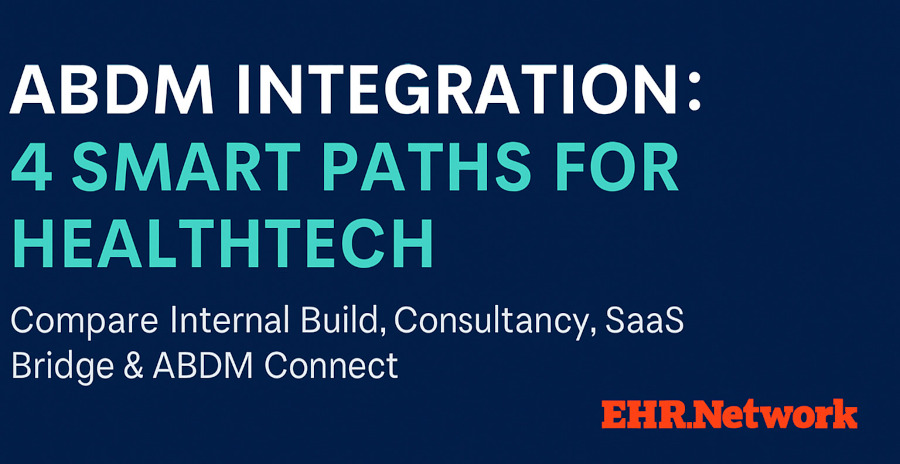
India’s digital healthcare revolution is accelerating under the Ayushman Bharat Digital Mission (ABDM). For healthtech providers, ABDM integration is no longer optional—it’s a business imperative.
But how do you achieve compliance without disrupting your product, blowing up your budget, or stalling your roadmap?
In this post, we break down the key integration paths and introduce a smarter engagement model built for reliability, control, and long-term success.
🔍 Comparing ABDM Integration Options
| Option | Control | Cost | Time to Integrate | Vendor Dependency | Long-Term Viability |
|---|---|---|---|---|---|
| Internal Development | High | High (initial) | Slow | None | High (if done well) |
| Consultancy Services | Medium | Medium–High | Moderate | Medium | Risky with updates |
| SaaS Bridge Platforms | Low | Ongoing | Fast | High | Vendor-locked |
| ABDM Connect (ABDMc) | High | One-time | Brisk | None | High (future-ready) |
⚙️ Option 1: Build with Your Internal Team
Developing integration in-house may seem like the most direct path, especially if your team is technically strong.
Key Questions:
- Does your product architect understand ABDM’s domain and certification process?
- Can your dev team handle the evolving APIs, security requirements, and consent workflows?
Common Pitfalls:
- Projects stalling due to lack of deep domain knowledge
- Significant delays and missed go-live dates
- Difficulty adapting to milestone changes (M1, M2, M3)
🤝 Option 2: Hire Consultancy Services
Many firms offer technical support and prebuilt libraries to accelerate integration.
What to Watch Out For:
- Lack of sustained focus on ABDM or public health ecosystems
- Delays due to poor adaptation to evolving ABDM specs
- Frustrating rebuilds when certification rules change
Bottom Line: What looks like acceleration often becomes a long, costly loop of retrofitting and re-certification.
🌐 Option 3: Subscribe to SaaS Bridge Platforms
Bridge providers offer “plug-and-play” access to ABDM. They’re fast—but come with strings attached.
Pros:
- Quick onboarding
- Minimal engineering involvement
Cons:
- Your customer data is routed via a third-party system
- Recurring fees and vendor lock-in
- Business continuity tied to the bridge provider’s future
🚀 Option 4: Use ABDM Connect (ABDMc) from EHR.Network
✅ The Smarter Engagement Model
ABDM Connect (ABDMc) is a certified ABDM Bridge software that becomes a native part of your healthtech platform—no external control, no ongoing rental.
🔑 Key Benefits
- Embedded integration with minimal disruption to your current architecture
- Support for every milestone: M1 (ABHA), M2 (HIP), M3 (HIU)
- No recurring subscription costs
- You retain full control—no vendor lock-in
- Perpetual license ensures long-term viability and ownership
After certification, ABDMc becomes a permanent part of your product—not a dependency.
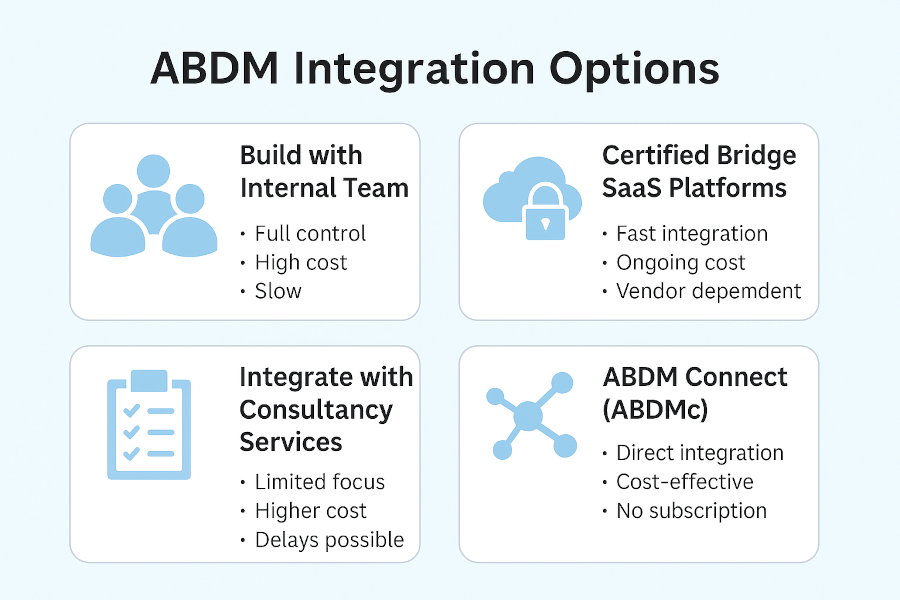
🧭 Final Thoughts
For digital health teams looking to simplify their ABDM journey, ABDM Connect (ABDMc) offers a future-ready, risk-free integration path—without the long-term baggage of external subscriptions or third-party control.
✅ Multiple Certifications done
✅ One-time cost
✅ Your system, your data, your control
Ready to take the smarter route to ABDM compliance?
- 🔗 Learn more at ehr.network
- 📝 Talk to us about how EHR.Network’s ABDM Connect can accelerate your ABDM certification
- 📅 Book a call to discuss more
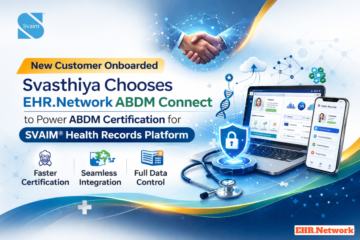
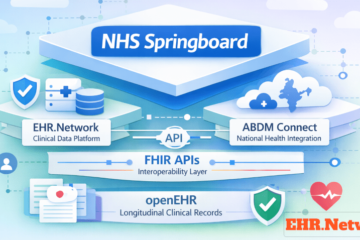
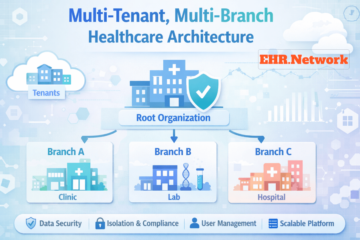
0 Comments